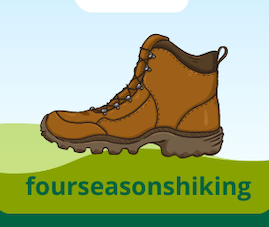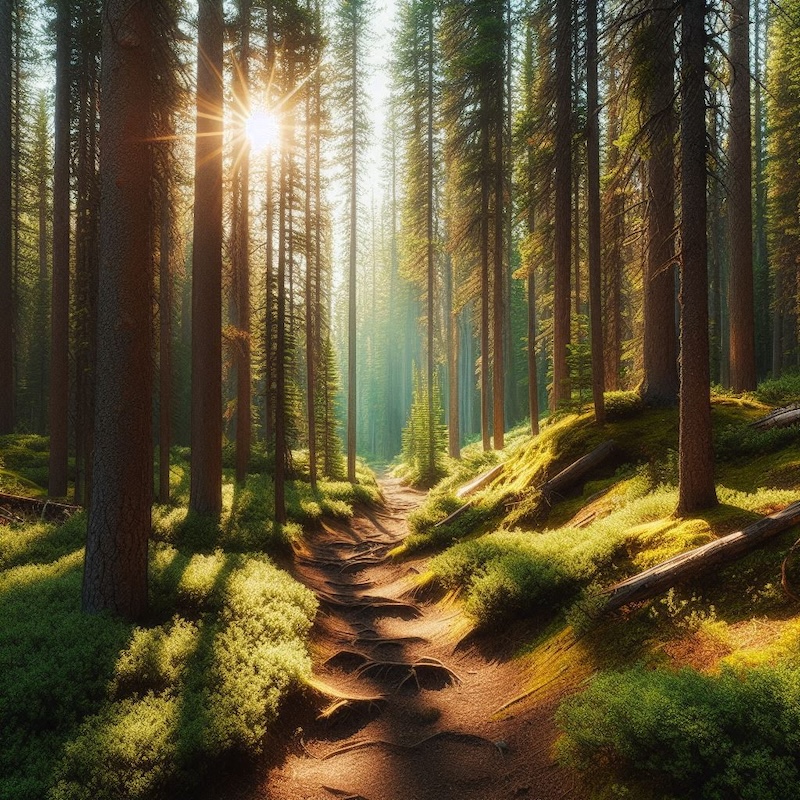I believe a successful hiking trip starts well before you hit the trail. It’s about making thoughtful decisions from the comfort of your home. Research and planning are your true trail companions. First-timers might think spontaneity is the spice of life, but overlooking the need to prep can lead to some serious trail trouble.
When it comes to packing, there’s a fine line between being prepared and hauling an overloaded backpack. Your goal is to carry everything you need without adding unnecessary weight. Stick to essentials: navigation tools, water, food, and appropriate clothing. That hefty survival guide? Leave it. Print out relevant pages instead.
A good pair of hiking boots is like a trusty steed; without it, you’re likely to stumble. Invest in quality footwear that supports and protects your feet, and make sure to break them in before you start your journey. Blisters and sore feet are sure signs of a novice hiker – and an easily avoidable discomfort.
Novice hikers often look to the sky and decide it’s a nice day for a hike. But actually, you need to check the forecast for the whole length of your planned hike. Weather can change rapidly, especially in mountainous areas, turning a sunny start into a soggy, dangerous ordeal.
Lastly, assess your fitness and experience level honestly. It’s tempting to tackle a challenging path, but choosing a trail that’s too difficult can lead to injury and distress. Pick a route that matches your ability, and you’ll enjoy the experience much more.
With the groundwork laid, your attention should now turn to on-trail practices. This is where your preparation pays off, and where you need to maintain your focus to avoid common mistakes that can turn an adventure into an ordeal.
On-Trail Practices: Common Hiking Missteps to Sidestep
Once you’ve got your boots laced tightly and your backpack secured, the real test begins. It’s easy to get caught up in the excitement of your first hike and forget the trail ahead is not just about the destination, but also about respecting the journey and the environment.
If you’re on the trail and the urge to explore beckons you beyond the marked path, remember why those markers exist. Staying on the trail is not only for your safety but also for the preservation of the natural flora and wildlife you’ve come to admire.
Hydration is another critical factor that often gets overlooked. A common mistake is waiting to drink water until you’re thirsty, but that’s usually too late. To maintain your stamina and avoid dehydration, drink water regularly, even if you don’t feel thirsty at the moment.
Speaking of the environment, ‘Leave No Trace’ should be your mantra from start to finish. This means everything you bring with you comes back out. It’s tempting to think a small piece of litter won’t make a difference, but if every hiker thought that way, the trails we love would suffer greatly.
Lastly, always listen to your body and be mindful of your limits. There’s no shame in turning back if conditions worsen or if the trail becomes too challenging. The mountains will always be there another day, and true bravery lies in making smart, safe decisions.


Hello Lonnie,
This post is a fantastic guide for first-time hikers! The emphasis on preparation and awareness really sets the stage for a successful hike. I completely agree that planning is key, overpacking and underestimating the importance of proper footwear can easily ruin an outing. The advice to check the weather thoroughly and to honestly assess your fitness level before choosing a trail is spot-on.
Listening to your body and knowing when to turn back if necessary is such a wise piece of advice. Hiking should be enjoyable, not a test of endurance. Overall, this post is a great resource for anyone new to hiking and looking to ensure their adventure is both safe and enjoyable.
Thanks for sharing these essential tips!
Thank you and happy camping!
Sincerely, Lonnie
Hi Lonnie
Thank you for this insightful and helpful guide into first hike. I like the guide because it provides practical advice that can make a huge difference for first-time hikers. The post does a great job of addressing common pitfalls like overpacking, underestimating the trail, and neglecting proper hydration. I like how it emphasizes preparation, encouraging beginners to research the trail, pack appropriately, and pace themselves to ensure a safe and enjoyable experience.
This guide makes me think about how even experienced hikers can sometimes overlook the basics when venturing into new terrains. It raises an interesting point: How can we create a balance between being prepared and not overcomplicating the hiking experience, especially for beginners who might feel overwhelmed by all the advice out there?
Thank you for commenting.
There is a lot of advice out there and I appreciate your concern about forgetting an essential. Some hiking principles can help when considering what to pack in preparation for an excursion. Safety should take precedence, whether taking a short hike or a longer one. Some questions you might ask are, Will you be hiking in an area that is secluded, or is the trail likely to have more hikers, perhaps because of its popularity?
The weather can take a turn and bring conditions that were not expected, what essential would you need if that were the case? Will you be hiking solo or with a companion or group?
If you are hiking Solo, did you tell someone about the area you will be hiking and when you plan to return?
Do I have an essentials list and do I check to be sure that I have everything BEFORE I leave home? Being safe is essential since we want to enjoy all that is there, in the great outdoors.
Sincerely
Lonnie